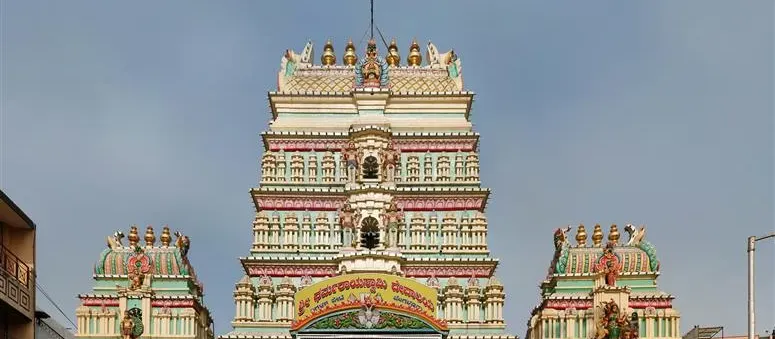The Meaning of Mandir: Exploring the Significance of Hindu Temples


Create Your Own Combo – Pick 4 Canisters & Save 10%

Have you ever wondered, What is the meaning of mandir? A mandir, also known as a Hindu temple, holds immense cultural and spiritual significance in Hinduism. In this blog post, we will delve into the origins of the word 'mandir,' its historical and religious importance, and its relevance in the modern world.
The term 'mandir' is derived from the Sanskrit word 'Mamdira,' which refers to a dwelling place or abode. It symbolizes a sacred space where devotees connect with the divine and seek spiritual solace. Mandirs are not merely physical structures; they are regarded as the embodiment of the divine presence.
Mandirs are integral to the practice of Hinduism, serving as places of worship, meditation, and community gatherings. They are dedicated to various deities, such as Lord Krishna, Lord Shiva, Goddess Durga, and many others, depending on the regional and cultural traditions.
These sacred spaces are designed with meticulous attention to detail, incorporating architectural elements that symbolize spiritual concepts. The temple structures often feature intricate carvings, vibrant paintings, and ornate sculptures, all of which contribute to the overall aesthetic beauty and spiritual ambiance.
Mandirs serve multiple purposes within the Hindu community. They provide a space for individuals to engage in personal prayers and rituals, offering a chance to seek blessings, guidance, and spiritual elevation. In addition, these temples host various religious ceremonies, festivals, and cultural events that bring the community together.
Moreover, mandirs act as educational centers, disseminating knowledge about Hindu scriptures, philosophy, and traditions. They often offer classes, workshops, and seminars on topics such as yoga, meditation, and Vedic sciences.
Mandirs exhibit diverse architectural styles, reflecting regional and historical influences. Some temples showcase the intricate craftsmanship of ancient civilizations, such as the Dravidian style in South India or the Nagara style in North India. Others incorporate contemporary designs while maintaining the essence of traditional Hindu architecture.
Common architectural features include towering entrance gates (gopurams), pillared halls (mandapas), central shrines (garbhagrihas), and sacred tanks (kunds). These elements combine to create a sacred space that facilitates spiritual experiences and fosters a sense of awe and reverence.
The meaning of mandir extends beyond its traditional religious context. In today's world, mandirs play a vital role in preserving and promoting Hindu culture and heritage. They serve as beacons of spirituality, offering solace and guidance to individuals seeking inner peace and purpose.
Furthermore, mandirs embrace inclusivity and welcome people from all walks of life. They provide a platform for interfaith dialogue, fostering understanding and harmony among different religious communities.
As educational centers, mandirs impart knowledge about Hinduism to both Hindus and non-Hindus. They offer classes and workshops on Hindu scriptures, philosophy, and practices, promoting a deeper understanding of this ancient religion.
Additionally, mandirs often organize cultural programs, showcasing traditional music, dance, and art forms. These initiatives help preserve and promote the rich cultural heritage of Hinduism, ensuring its continuity for future generations.
Mandirs have also adapted to the needs and interests of millennials, incorporating technology and innovative approaches to engage the younger generation. Many temples now offer mobile apps, live streaming of ceremonies, and virtual tours, enabling individuals to connect with the divine in a digital age.
Moreover, mandirs organize youth-centric events, workshops, and volunteer opportunities, providing millennials with a platform to explore their spirituality, engage in community service, and develop leadership skills.
The meaning of mandir encompasses not only the physical structure but also the spiritual and cultural significance it holds. These sacred spaces serve as gateways to the divine, fostering a deep sense of devotion, community, and understanding.
Whether you are a devout follower of Hinduism, an explorer of world religions, or someone seeking spiritual nourishment, the mandir invites you to embark on a transformative journey of self-discovery and connection with the divine.